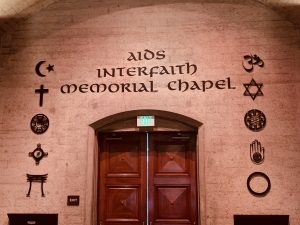The Science of Spirituality and Spiritual Well-Being
The Science of Spirituality
KDAlive preaches spirituality as a core tenet of Ultimate Well-Being. “How can I believe something I can’t prove? you ask yourself. “How can I quell my fears and anxieties?”
You are up late at night. You can’t sleep with life’s big questions floating through your head.
Unlike measuring nutrition or tracking motivational states, it is complicated to measure our spirituality scientifically.
Spirituality, for many, involves believing in a supernatural force. A God, Spirit, or other force. The word- supernatural- is both praised as something we believe in that is bigger than ourselves, and mocked as unbelievable or unrealistic. And today with COVID-19 there are maybe even more spiritual lessons to learn, perhaps it was a call to humanity to change its ways, or else. Ryan Paugh writes in his blog.
But spirituality is more than believing in a supernatural force. In fact, spiritual well-being can be scientific! Religion, mediation, and even science have been sources of comfort, community, and guidance for thousands of years.
So what happens when we make spirituality secular? Fear is an emotion, yes, but also a guide. What are we afraid of? What can we change? Uncertainty is a challenge to explore and make the most of what is available to us.
Science seeks to measure the immeasurable. To answer the questions we are most uncertain about. But it can’t answer everything. And Isn’t that what every major religion aims to fill-in? Finding comfort in uncertainty-be it through facts proven through science, or through the comfort of a religious or spiritual community. Spirituality is a calling to be a part of something bigger than ourselves. Is there a possibility science has a place within spirituality?
Spirituality and Science are not mutually exclusive. Take, for example, the many Christians who believe in climate change and evolution. Pitting a belief system against human history, and our scientific findings, promotes that only one can be correct––and this debate over right and wrong sends the message that spirituality is not supernatural, but rather unnatural and even problematic.
Here’s what I’ve learned in my years of well-being research and travel:
- Spiritual communities, religious or otherwise, are communities like no others. Finding people to do anything from worshipping together, to simply sitting and listening, makes a world of a difference for our holistic well-being. I’ve found my own spirituality everywhere from a kitchen counter to my yoga mat to a church group, and everywhere in between.
- Spirituality is not religion. You can be an atheist or a devout agnostic, and still cultivate spirituality. Spiritual well-being is individual and personal; define it for yourself.
- Contemplating life and death is challenging. Anything that helps you grasp these concepts––scientifically, religiously, or otherwise––promotes peace of mind.
Rather than telling yourself that we cannot be spiritual and scientific, we recommend embracing the reality that both can hold true. You, and your Ultimate Well-Being, will be better for it. Let us know what you think!

